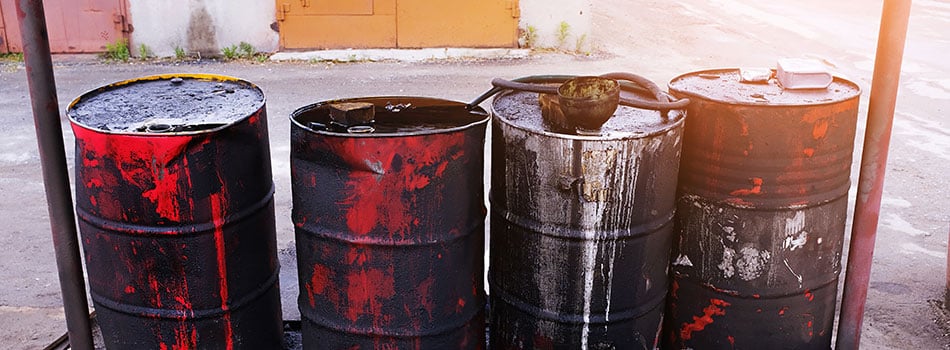The Slippery Slope: A Guide to Oil & Grease Recycling for Kitchens and Job Sites
Whether you are deep-frying turkeys at home, running a busy commercial kitchen, or managing a construction site, one thing is certain: grease happens.
Disposing of used oil is one of the trickiest parts of waste management. Do it wrong, and you risk clogged plumbing, environmental fines, and polluted groundwater. Do it right, and that “waste” becomes a sustainable fuel source.
The Golden Rule: Never Down the Drain
The cardinal sin of grease disposal is pouring it down the sink.
- The Damage: Grease solidifies as it cools. Poured down a drain, it coats pipes and contributes to “fatbergs”—massive clogs that damage municipal water treatment facilities and cause expensive plumbing backups in your home or business.
- The Environment: Dumping oil outside is equally bad. It seeps into groundwater, poisoning local wildlife and plants.
Residential Tips: Strain, Store, or Freeze
For the home chef, you don’t always need to toss it immediately.
- Reuse It: If you haven’t heated the oil past its smoke point, it’s still good! Strain it through a cheesecloth while warm to remove food particles, then store it in the fridge.
- The Freezer Hack: For small amounts of grease (like bacon fat), pour it into a can and freeze it. Once solid, it can be tossed in the garbage or green bin (check your local municipal rules).
- Bulk Disposal: Have a lot of fryer oil? Mix your kitchen oils in a sealable container. You don’t need to refrigerate it—just seal it and bring it to a local collection site.
Commercial Kitchens: The Biodiesel Opportunity
Commercial kitchens produce too much oil to just “freeze and toss.” But there is a silver lining: Yellow Grease (used cooking oil) is a valuable commodity.
- From Fryer to Fuel: When recycled properly, used vegetable oil is processed into biodiesel, a clean-burning alternative energy source.
- Managing the Trap: Every commercial kitchen has a grease trap. While Trash King provides the dumpsters for your solid waste, packaging, and food scraps, we recommend partnering with specialized pump services (like EcoZero or DT Environmental) for trap suction.
Construction Sites: Heavy Equipment Grease
It isn’t just kitchens that get greasy. Bulldozers, cranes, and rollers rely on heavy-duty lubricants to resist extreme pressures and corrosion.
- The Waste Stream: Once this grease degrades, it becomes hazardous waste.

